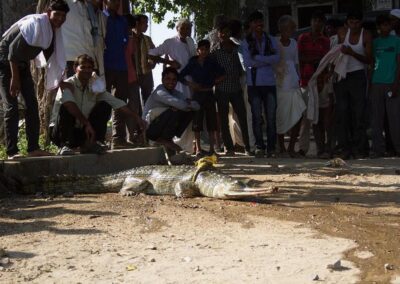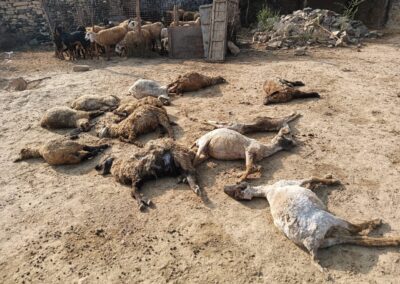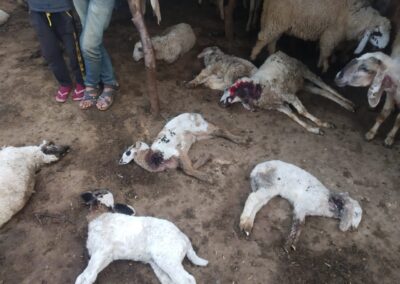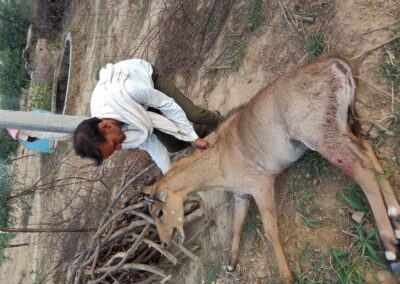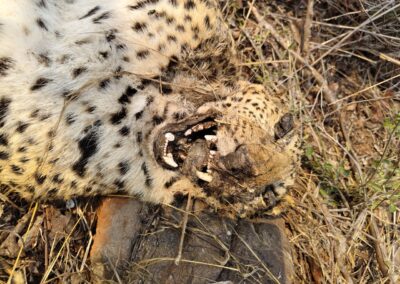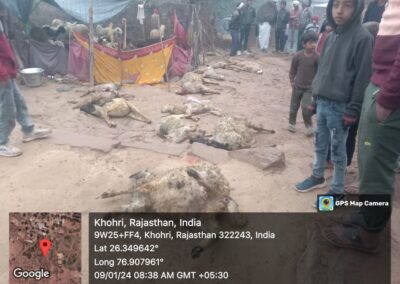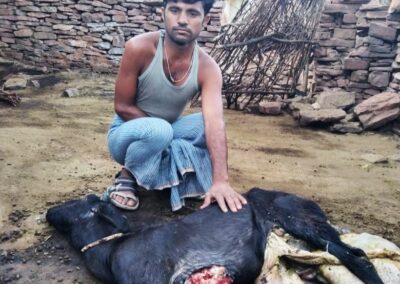Human-Wildlife Conflict Mitigation
Like poaching, human-wildlife conflict threatens tigers in the Ranthambhore landscape and causes biodiversity loss. The delicate coexistence of predators and livestock on farmlands is an unavoidable reality. However, conflict occurs when predators deplete livestock numbers or herbivores raid crops. Retaliatory killings of predators such as tigers usually take the form of poisoning the livestock kills they make, which is indiscriminate and can result in the loss of any animal or animals which happen to feed on the kill. Death by electrocution is another problem for both predators and herbivores on agricultural land.
Making informed choices is the most effective way of mitigating such situations. During such scenarios, our tiger monitoring team is an intermediary between the Forest Department and local communities.
The team reports cattle kills and makes sure that no one poisons carcasses. They have reported approximately 500 cattle kills in the last nine years.
We have facilitated and, at times, also provided compensation for cattle kills.
Our monitoring team also helps prevent crises when big cats like tigers and leopards and also, sloth bears roam into human-inhabited areas by ensuring that local people are aware and stay out of harm’s way as the Forest Department’s flying squad mounts rescue operations.
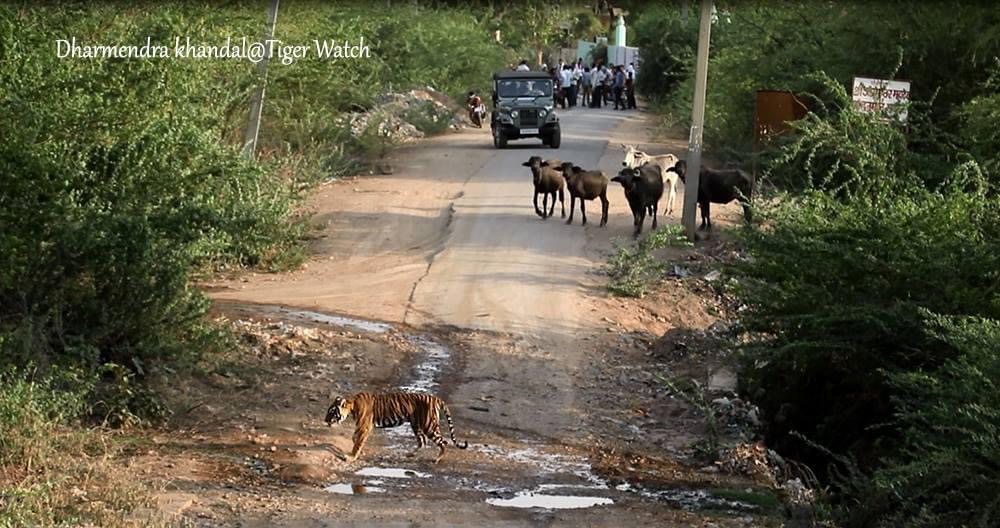
Tiger Watch’s team ensures encounters such as this one in Khandar town occur safely for both the tiger and local people.
The team has even assisted the Forest Department’s Flying Squad with similar rescue operations involving other endangered species, such as the gharial.
Tiger Watch has also designed and procured wildlife rescue equipment for the Forest Department’s flying squad. After consulting with the Forest Department, Tiger Watch designed specialised rescue equipment such as cages, Y sticks, snake graspers, snake tongs, safe snake bags, various nets, ropes, a crocodile grasper, a monitor lizard rescue trap, etc.
Apart from increased monitoring and vigilance in the peripheral areas of Ranthambhore to mitigate problems, it is interesting to note that local communities are now taking the lead in such interventions.
Gallery
Address:
Maa Farm,
Ranthambhore Road,
Khilchipur, Sawai
Madhopur, Rajasthan,
India - 322 001
Phone: (+91) 90015 07777

